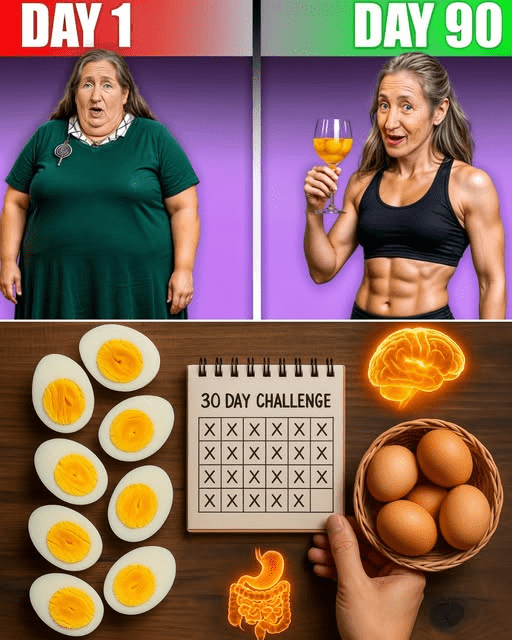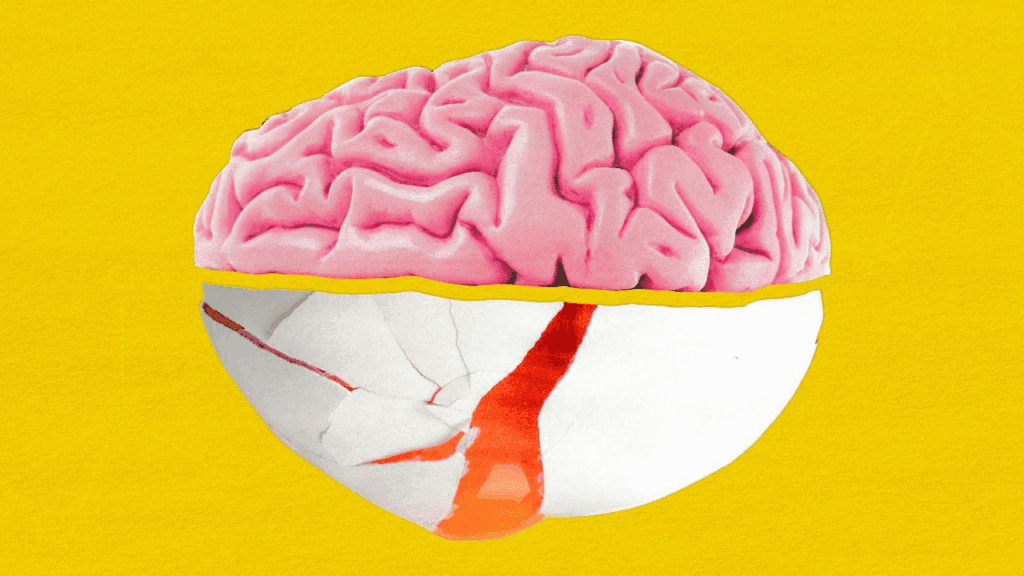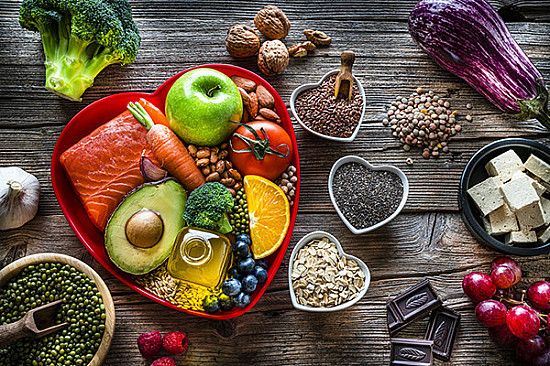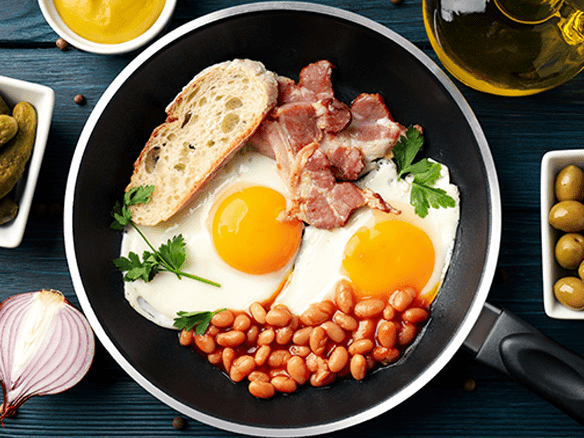Eggs are a versatile, nutrient-packed food that can boost your health when part of a balanced diet, but eating only eggs for 30 days is an extreme approach that’s not recommended. Inspired by wellness educator Barbara O’Neill’s enthusiasm for natural foods, this article explores evidence-based ways to enjoy eggs to support energy, heart health, and overall well-being. Backed by trusted sources like the Mayo Clinic and Harvard Health, these tips avoid exaggerated claims and focus on practical, sustainable habits. By incorporating eggs thoughtfully, you can nourish your body and feel great. Let’s dive into how to make eggs a healthy part of your diet!

Why Eggs Are a Nutritional Powerhouse
Eggs are often called a “superfood” because they’re rich in protein, vitamins, and minerals, all for about 70 calories per egg, per the USDA. They provide high-quality protein, choline for brain health, and nutrients like vitamin D and B12. While Barbara O’Neill’s story of eating only eggs may grab attention, a 2020 study in The American Journal of Clinical Nutrition emphasized that eggs are most beneficial when paired with a variety of foods. Extreme diets can lead to nutrient deficiencies, so balance is key. Here’s how eggs can support your health when included wisely.

Support Energy and Muscle Health with Protein
Eggs are an excellent source of high-quality protein, providing about 6 grams per large egg, which supports muscle repair and sustained energy, per the Mayo Clinic. A 2019 study in Nutrients found that adequate protein intake helped maintain muscle mass and energy levels, especially in active adults. For those looking to stay energized without extreme diets, eggs are a versatile addition.
Incorporate eggs for energy:
- Breakfast boost: Start your day with a scrambled egg on whole-grain toast for lasting energy.
- Post-workout snack: Hard-boil eggs for a protein-rich recovery food after exercise.
- Combine with veggies: Pair eggs with spinach or bell peppers for added nutrients and fiber.
Tip: Make a veggie-packed omelet with spinach and tomatoes for a protein-rich, energizing meal. Share this recipe with a friend who loves quick breakfasts!
Boost Brain Health with Choline
Eggs are one of the best sources of choline, a nutrient vital for brain health and memory. Harvard Health notes that choline supports nerve signaling and may reduce inflammation, benefiting cognitive function. A 2021 study in The Journal of Nutrition found that higher choline intake was linked to better memory performance in adults. Including eggs in your diet can help support your brain without the need for restrictive eating.

Add choline with these egg ideas:
- Egg salad: Mix chopped hard-boiled eggs with Greek yogurt and herbs for a brain-friendly lunch.
- Baked eggs: Bake eggs with zucchini and cheese for a nutrient-dense dinner.
- Limit to moderation: Aim for 4–6 eggs per week to balance choline intake, per dietary guidelines.
Pro tip: Try a hard-boiled egg as a snack with a handful of almonds for a brain-boosting combo.
Support Heart Health with Balanced Intake
Eggs were once criticized for their cholesterol content, but recent research shows they can fit into a heart-healthy diet when eaten in moderation. The American Heart Association states that one egg per day is generally safe for most people, as dietary cholesterol has less impact on blood cholesterol than previously thought. A 2020 study in The British Medical Journal found no link between moderate egg consumption and increased heart disease risk in healthy individuals.

Enjoy eggs heart-smart:
- Choose healthy prep methods: Poach or boil eggs instead of frying in butter to keep fat low.
- Pair with fiber: Combine eggs with whole grains or vegetables to support heart health.
- Watch portions: Stick to 1–2 eggs per meal to avoid excessive calorie intake.
Tip: Poach an egg and serve it over a bed of quinoa and kale for a heart-healthy, nutrient-packed dish. Comment below with your favorite way to enjoy eggs!
Balance Your Diet for Overall Wellness
Eating only eggs, as in Barbara O’Neill’s story, can lead to nutrient gaps, as eggs lack fiber, vitamin C, and other essentials, per the CDC. A balanced diet with a variety of foods ensures you get all the nutrients your body needs. A 2018 study in The Lancet found that diverse diets including fruits, vegetables, whole grains, and proteins like eggs supported better overall health than restrictive diets.
Balance eggs with these foods:
- Fruits and veggies: Add berries or broccoli to meals for fiber and antioxidants.
- Whole grains: Pair eggs with oats or whole-grain bread for sustained energy.
- Healthy fats: Include avocados or nuts alongside eggs for heart-healthy fats.
Pro tip: Make a breakfast bowl with scrambled eggs, avocado, and whole-grain toast for a balanced, nutrient-rich start.
Stay Active to Complement Your Diet
Physical activity enhances the benefits of a nutrient-rich diet, supporting energy and overall health. The CDC recommends 150 minutes of moderate exercise weekly, like walking, to boost metabolism and mood. A 2021 study in Medicine & Science in Sports & Exercise found that regular activity paired with a balanced diet, including protein sources like eggs, improved energy levels and muscle health.

Incorporate movement with these ideas:
- Take short walks: A 15-minute stroll after meals aids digestion and boosts energy.
- Try strength exercises: Bodyweight squats or light weights support muscle health alongside egg protein.
- Make it fun: Dance or garden for enjoyable activity that complements your diet.
Tip: Walk for 10 minutes after breakfast to maximize the energy boost from your egg-based meal. Explore more health tips on our site!
When to See a Doctor for Health Concerns
While eggs are nutritious, persistent fatigue, weight changes, or other symptoms may signal an underlying issue, like a nutrient deficiency or thyroid problem, per the Mayo Clinic. Extreme diets like eating only eggs can cause health imbalances and aren’t recommended. A 2020 study in The Journal of Clinical Nutrition emphasized the importance of medical evaluation for unusual symptoms to ensure proper nutrient balance.
Seek medical advice if you notice:
- Ongoing tiredness or weakness despite a balanced diet.
- Unintended weight changes or digestive issues after dietary shifts.
- Symptoms like irregular heartbeat or muscle cramps, which may indicate nutrient imbalances.
Tip: Keep a food and symptom journal to share with your doctor for tailored advice.
A Note on Barbara O’Neill’s Advice
Barbara O’Neill promotes natural foods like eggs, but her claims, such as dramatic results from extreme diets, lack scientific support. The New South Wales Health Care Complaints Commission banned her from providing health services in Australia in 2019 due to misleading advice, including unproven treatments for serious conditions. Always verify health tips with trusted sources like the Mayo Clinic or your doctor to ensure they’re safe and effective.
Building a Balanced Routine with Eggs
Eggs can be a fantastic part of a healthy diet, providing protein, choline, and other nutrients to support energy and wellness. By eating eggs in moderation, balancing them with fruits, vegetables, and whole grains, staying active, and seeking medical advice when needed, you can boost your health naturally. These science-backed tips make wellness approachable and sustainable for lasting results.

Here’s a daily checklist for healthy egg consumption:
- Enjoy 1–2 eggs with veggies or whole grains for a balanced meal.
- Poach or boil eggs to keep preparation heart-healthy.
- Pair eggs with fruits or nuts for added nutrients and fiber.
- Take a 15-minute walk or do light exercise to complement your diet.
- Drink 6–8 glasses of water daily to support energy.
- Consult a doctor if you experience unusual symptoms or plan major dietary changes.
By adopting these habits, you’ll feel more energized and confident in your health journey. Share this article with someone who’d love these tips, or comment below with your favorite egg recipe!
Disclaimer
This article is for informational purposes only and does not substitute professional medical advice. Consult your doctor before making health changes or adopting new dietary practices.